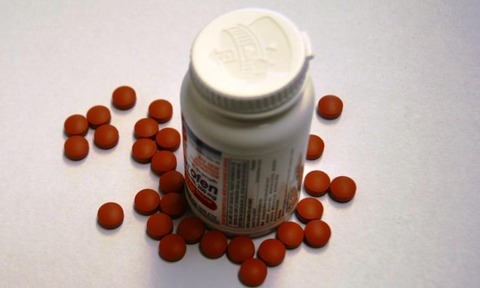Ibuprofen "unlikely" to expand human lifespan
19 Dec 2014

Expert claims ibuprofen use is unlikely to extend a human’s lifespan, though its use was beneficial in studies using less complex species.
Research published yesterday in the journal Public Library of Science-Genetics found that regular doses of ibuprofen extended the lifespan of worms and fruit flies.
Ibuprofen, an over-the-counter drug that is widely available, is described as a “nonsteroidal anti-inflammatory drug used for relieving pain, helping with fever and reducing inflammation”.
The research, conducted by experts at Texas A&M AgriLife - a US-based agriculture research centre - was initially conducted using baker’s yeast which ’lived longer’ when treated with ibuprofen.
“If the lifespan extension was dependent upon early growth or developmental effects, it is unlikely to be useful in humans
Lancaster University’s David Clancy
“Then we tried the same process with worms and flies and saw the same extended lifespan. Plus, these organisms not only lived longer, but also appeared healthy,” said Michael Polymenis, an AgriLife Research biochemist in College Station.
According to Polymenis, the treatment, given at doses comparable to the recommended human dose, added roughly 15% more to the species lives.
In humans, that would be equivalent to another dozen or so years of healthy living, Polymenis said.
The research, which took place over a period of three years, found that ibuprofen interferes with the ability of yeast cells to pick up tryptophan, an amino acid found in every cell of every organism.
“We are not sure why this works, but it’s worth exploring further,” Polymenis said.
“This study was a proof of principle to show that common, relatively safe drugs in humans can extend the lifespan of very diverse organisms. Therefore, it should be possible to find others like ibuprofen with even better ability to extend lifespan, with the aim of adding healthy years of life in people.”
Experts, however, are exercising caution before suggesting this research will lead to an extension of human life and a slowing of the human ageing process.
“Although [Polymenis and his colleagues] did test the drug in the fruit fly Drosophila, and observed lifespan increase, the result needs to be repeated using better controls and testing for the effect on tryptophan metabolism,” said David Clancy, a lecturer researching genetics and biology of ageing at Lancaster University.
“Once that is confirmed, tests in mice should be done.”
According to Clancy, the size of genetic- or drug-induced lifespan extension nearly always seems to diminish substantially or disappear as we progress up the scale of complexity in model organisms.
“The question is whether this finding might be relevant to lifespan in humans,” Clancy said.
“If the lifespan extension was dependent upon early growth or developmental effects, it is unlikely to be useful in humans. Otherwise, it might possibly provide benefits.
“There should already be data from other observational studies in humans that will give a strong indication about whether there is an association in people - ideally a randomised control trial would give a more robust answer.”
Unfortunately, due to the need to follow the experiment through the human lifespan this would take too much time, Clancy said.

